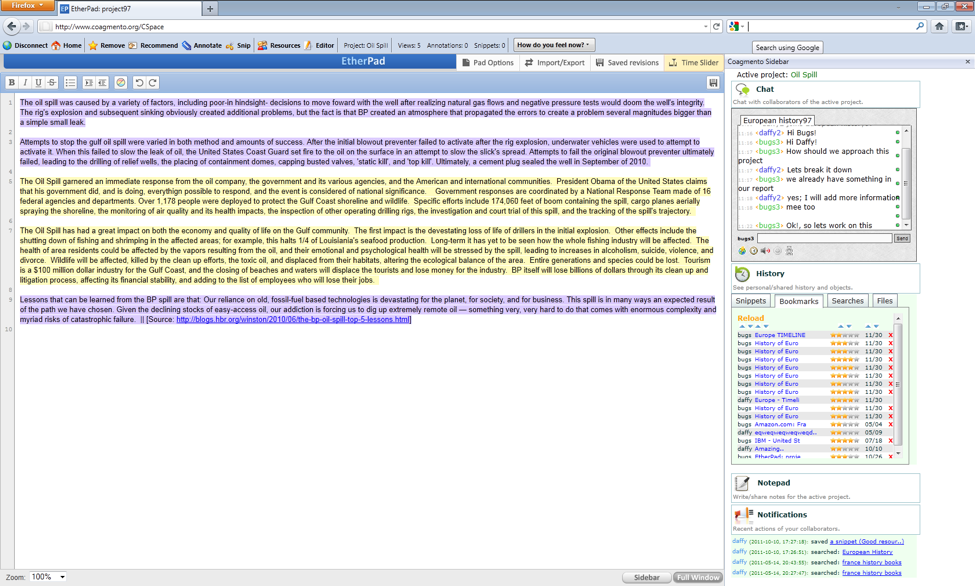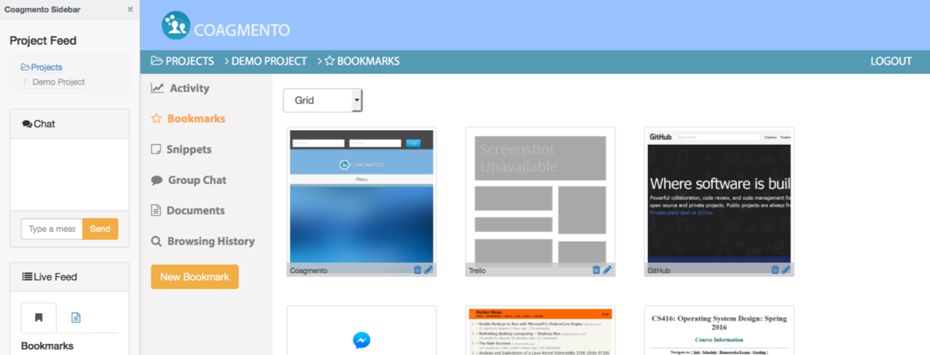Celebrating Ten Years of Coagmento!

Coagmento was initially developed by Chirag Shah, in 2007, as a research project for his PhD dissertation. When Dr. Shah brought Coagmento to Rutgers University, it was further developed by his PhD student Roberto Gonzalez-Ibanez, followed by several other undergraduate and graduate students at Rutgers. Over the decade, many iterations of Coagmento have been released in Beta and public versions, as it continues to be tested and used and some bugs worked out. In 2013, Coagmento Collaboratory was released and later that year the first full version, Coagmento 1.0, was released. In 2016, Coagmento 2.0 was released, and later this year Coagmento 3.0 will be released with the aim to be even more user friendly.
What exactly is Coagmento and what does it do? Coagmento is a Web-based, open-source tool for information seeking that facilitates the collecting of information and collaborating on projects in teams. It helps the user at every step by recording visited Websites, bookmarking pages, and collecting pictures or snippets of text or source information. All along a live chat feature allows team members to confer from remote locations over multiple sessions. At the back-end, Coagmento is comprised of two major components: (1) Node.js, which creates a server-side notification framework and “push notifications,” and (2) is coded in Laravel, a Model-View-Controller PHP framework that supports several SQL databases. Since version 2.0, Coagmento has been available through GitHub as an open-source tool.

Coagmento 1.0 in action.
On the serious side, Coagmento can allow collaborators to work on challenging informational tasks. For example, it could help siblings gather information about their parent’s illness so they can be proactive in making decisions. In a classroom setting, Coagmento has been deployed for dozens of students to up to several hundred to facilitate collaboration. Keeping track of disparate pieces of information means that when the student/researcher sits down to write a report or create a presentation, the information is saved in a workspace where it can be put it together.

On the lighter side, Dr. Shah said, “When my wife Lori and I were planning our wedding, we used Coagmento to keep track of places in the North Carolina mountains for location consideration so we could make a decision with all the pieces in front of us.” He continued, “But, it’s come a long way since then as not only a tool but also a platform for supporting and studying individual and collaborative information seeking.”
Here’s a toast to the next ten years as Coagmento continues to evolve in usefulness and application to many of life’s information challenges.